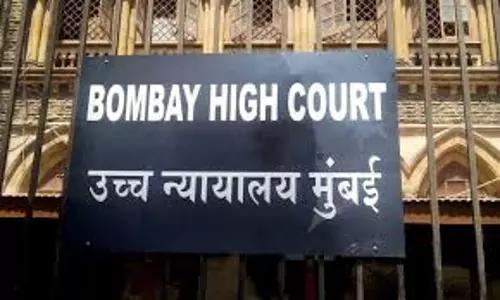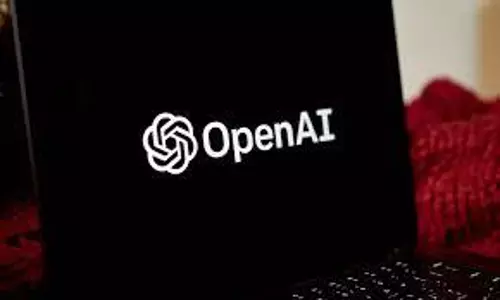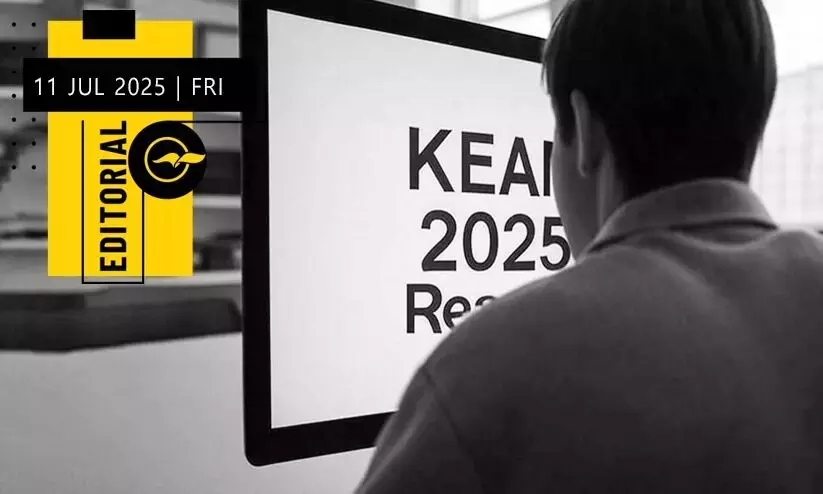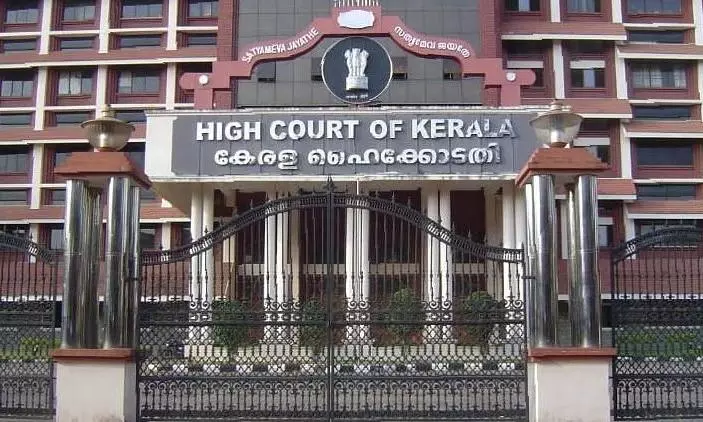
KEAM: A crisis brought about by the government
text_fieldsWith the Kerala High Court invalidating the rank list for the Kerala Engineering Architecture Medical (KEAM) entrance exam, this year’s engineering admissions in the state have been thrown into disarray. Justice D.K. Singh of the High Court ordered that the rank list be revised and republished in accordance with the prospectus issued on February 19. The state government's appeal to stay this order was dismissed by the Division Bench yesterday. This legal tussle has pushed students' higher education prospects into uncertainty, causing immense mental stress for thousands of students and their families. Even if the matter reaches the Supreme Court, there is no guarantee of an outcome offering relief. Despite years of strong criticism against the mark normalisation formula that has been followed for nearly a decade and a half, the government’s continued indifference in formulating a timely solution or introducing a new system is viewed as the genesis of the current crisis. This situation serves as a stark example of how carelessly the state government handles critical issues in the higher education sector. The existing normalisation formula, aimed at bringing parity among students from different educational boards, has been widely criticised for being unfair to students following the state syllabus. Acknowledging these concerns, the Commissioner for Entrance Examinations wrote to the government, recommending the appointment of a review committee to examine the current mark normalisation process. In a matter that required careful evaluation of data and an error-free resolution, what actually unfolded was an unforgivable negligence and delays in follow-up action.
Even though the prospectus was published on February 19, 2025, a meeting on the issue was held under the Chief Minister’s leadership only after that. It still took over a month just to appoint an expert committee and issue the necessary order. The committee maintained that any alternative method could be proposed only after thoroughly analysing the results and data from various examination boards, and that sufficient time was required for this process. This position was both reasonable and justified. It is evident that hasty, poorly planned solutions are likely to end up violating the rights of students. This entrance examination, which plays a crucial role in shaping students' future, needed to be conducted with utmost accuracy and fairness — not just for the sake of the students but also to uphold the credibility of higher education in the state. However, after initial delays, the sudden rush in decision-making appears to have only worsened the situation. Though the exam was completed on May 14 and the scores were published shortly after that, the expert committee submitted its report with five alternative proposals only on June 5. In such a delayed scenario, the logical course of action would have been to thoroughly evaluate the options, identify the most suitable solution, and implement it starting from the next academic year. Instead, after prolonged inaction, the government abruptly convened a special cabinet meeting on June 30 and approved an amendment to the prospectus. The very next day, the government issued the order and published the rank list—completing the entire process within just a few hours. This abrupt and hasty execution, following a prolonged period of inaction, was sharply criticised by the Kerala High Court. The court pointed out that amending the prospectus just one hour before the publication of the rank list on July 1 was both unlawful and arbitrary. It also ruled that making last-minute changes to the mark normalisation method was unacceptable. The judgment clearly stated that rules cannot be altered once the process has already begun. The court’s firm stance serves as a warning to the government to take the matter seriously and address the shortcomings.
The Higher Education Minister is accountable for explaining what concrete steps the department took on this issue between last August and the release of the prospectus on February 19. It was the department's prolonged inaction and unwarranted delay in addressing the growing concerns over the mark normalisation formula that pushed students into a state of uncertainty and ultimately into a legal battle. By striking down the KEAM rank list, the Kerala High Court has delivered a strong rebuke to the government for its negligence and abuse of authority. Lapses in conducting entrance examinations and the procedures that follow severely undermine public trust in the higher education system. If the state government fails to complete the admission procedures before August 14—the deadline set by the All India Council for Technical Education (AICTE)—the situation could spiral further out of control. The future of an entire generation must not be forgotten or sacrificed amid political manoeuvring and administrative missteps, . At least now, the government must ensure that its primary focus is the welfare of the students, and nothing else.




















